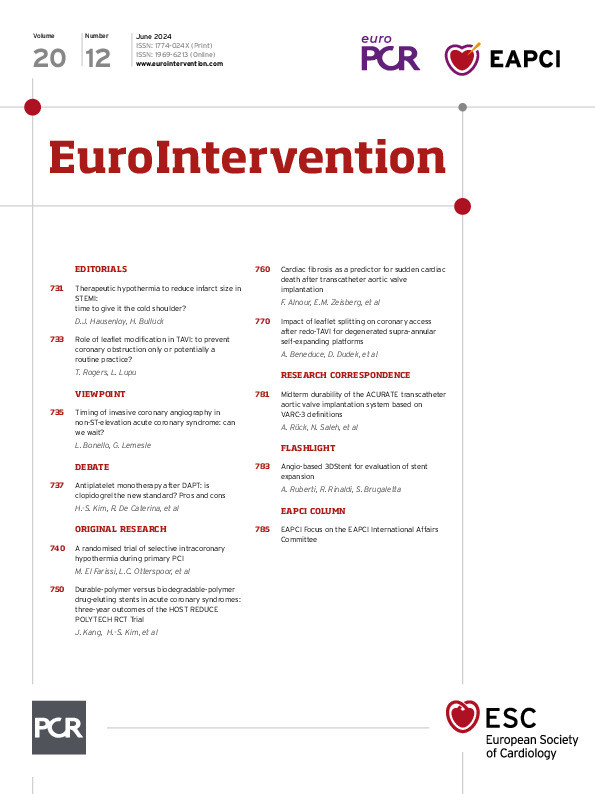What is the role of the committee?
Together with my Co-Chair, Dr Rui Teles, our committee is the open door from the EAPCI to the interventional cardiology community. Our key role is to network between all the ESC interventional national working groups (NWGs) and societies and the EAPCI. The NWGs are the most important and natural partners for the EAPCI, and our association needs to be in regular contact with them to define the future direction of the association together. The key event in this interaction is the EAPCI summit, held every year in spring, during which NWG presidents/representatives are invited to share their thoughts for the future with the EAPCI board, as well as to hear the vision of the board.
How does the EAPCI International Affairs Committee benefit the interventional cardiologist ?
The International Affairs Committee allows each interventional cardiologist to express their voice to the EAPCI board, through their NWG representatives. It is also instrumental in implementing collaborative projects with dedicated NWGs. As an example, together with the EAPCI Education and Training Committee and the Swiss Cardiac Society, we are currently developing an Interventional Cardiology Certification in Switzerland based on the EAPCI Interventional Cardiology Certification. Trainees will simultaneously receive a Swiss and an EAPCI certificate. We will be proposing similar, combined national/EAPCI certification processes to other countries.
What has been the biggest achievement of your committee?
The true main achievement of our committee is effectively and continuously networking with the NWGs and EAPCI. As part of our most recent actions, our committee has been involved in the preparation of the 2024 EAPCI Core Curriculum for Percutaneous Valvular and Structural Heart Disease Interventions, soon to be published. We identified experts from more than 20 different countries, who constituted the writing committee. We are also currently finalising the data collection of the 3rd edition of the EAPCI ATLAS in interventional cardiology, under the leadership of past-President, Dariusz Dudek. The collection of data has been conducted in 43 countries through the active collaboration of their NWGs. The number of participating countries has significantly increased over the years: 16 countries in 2016 (1st edition) and 35 countries in 2018 (2nd edition). In this new edition, we have collected 65 variables, including 17 new variables to propose a more accurate description of interventions, including the most recent advances in intervention. The ATLAS will provide a very detailed description for each country of (1) healthcare resources for interventional cardiology, (2) procedures and resources for coronary interventions, and (3) procedures and resources for structural interventions.
What are the ongoing challenges your committee faces?
We are a very large committee. It is very difficult to gather all members face-to-face at the same time. It is usually done during the EAPCI summit and EuroPCR. We are working to increase the frequency of in-person meetings during the year.
How can EAPCI members become involved in the work of the International Affairs Committee?
The best way is through your NWG: each ESC member country has an NWG representative in our committee.

